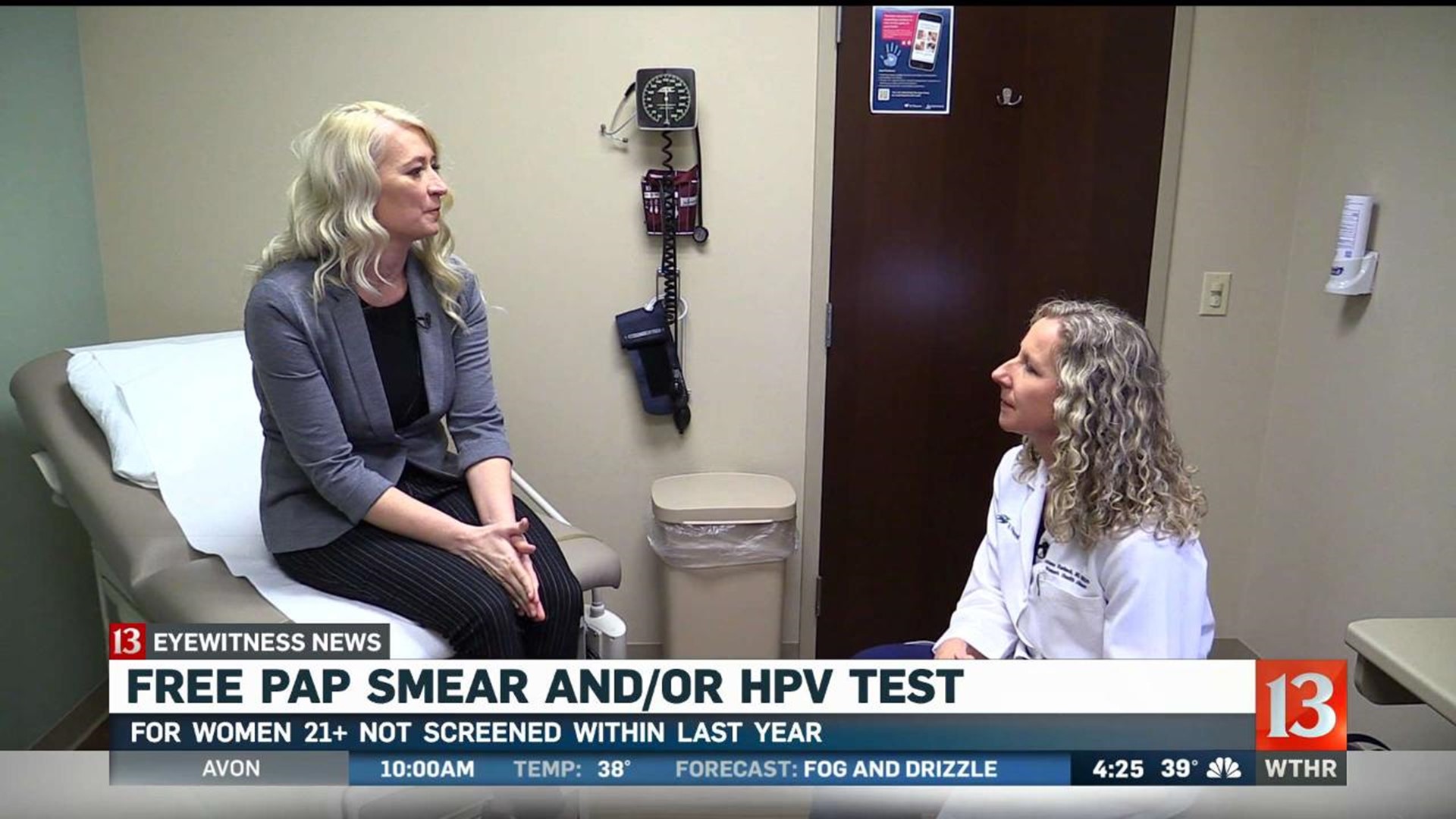INDIANAPOLIS (WTHR) — As another year begins, Check Up 13 is focusing on women's health, specifically HPV testing and Pap smears.
The routine Pap smear is a test where doctors retrieve samples of cells from a woman's cervix to check for abnormalities that may be indicative of cervical cancer.
In early stages, dysplasia is a precancerous condition that is strongly associated with human papillomavirus (HPV) infection. Doctors says an overwhelming majority of women are infected with HPV.
"HPV is incredibly common, 80 percent or so are going to have an HPV infection at some point in their life. I equate it to the common cold for the cervix" said Dr. Adrienne Rasbach, an OBGYN with Ascension St. Vincent in Carmel.
Rasbach said there are more than 100 strains of the virus but 14 of them are considered high risk, and two, called type 16 and 18, are responsible for about 70 to 80 percent of cancers. The key is consistent monitoring, which varies based on your individual age, risks factors and health history.
"Anybody that has been five years without having a Pap complete, absolutely needs to come in and have a Pap done," Rasbach said. "That's the magic number, we do not want anybody to go beyond five years."
Most insurance companies consider the exam preventative care and cover the cost at 100 percent, but Rasbach said unfortunately, womensometimes delay the screening and that allows abnormal cells to progress unchecked.
"It may be women that forget, don't have time, or don't put it as a high priority," Rasbach said. "After child bearing is completed, they are busy being moms, taking care of everybody else. ... Sometimes I'll see those women let their care lapse during that time. One of the biggest reasons we don't see patients is going is the uninsured. They don't have medical care, can't afford medical care and if you don't have coverage, the cost can be prohibitive and keep women from coming in."
The goal is routine screening, so you can have a positive outcome like Shannon Miller of Kokomo. She is 39, married with a son and works as a nurse. She knows she is a role model for her patients and friends.
"Just being a nurse all the screenings we recommend people to do, I just really felt like I needed to be you know an advocate for myself and also be an example to show other people that it is important to do screenings," Miller said.
And that includes an annual visit with her OBGYN starting at age 21.
"I did Pap smear screening for years until I was about 34 or 35. I had a Pap smear that came back as abnormal cells. Later I was checked for HPV and that came back positive" Miller said.
Miller and her doctor agreed to a LEEP procedure, where Rasbach removed the abnormal cells.
But at the next visit, the cells were back, and there were more of them.
"The women that we worry about are the women like Shannon where that HPV infection is persistent; it sticks around for more than two years. She has a type of HPV that is more difficult for her immune system to get rid of and that combination of those factors is really where the danger comes," Rasbach said.
Miller knew the risk and the rest results made her anxious.
"Usually that virus will go away on it's own and mine was not. The doctor's recommendation was to follow up within a year and just within that year my cells had changed from low-grade dysplasia to high-grade dysplasia. So that means that more likely to develop cervical cancer. So we talked about treatment options and I decided to go ahead and do a hysterectomy to reduce my risk" Miller said. "Just knowing how fast my cells changed, even someone like me who is diligent in making sure I was coming in for my screenings, ...thinking about what it could have turned into had I not been keeping track of everything."
Miller said there is no history of cervical cancer in her family and she hopes other women take her advice to get screened.
"I think a lot of times people get in that mind set you know I'm fairly healthy it can't happen to me. But that truth is, it can happen to anyone," she said.
If you are a woman, 21 or older, who has not had a screening in the last year, you qualify for a free Pap smear and or HPV test courtesy Ascension St. Vincent and Check Up 13.
To register, call the hotline 1-866-824-3251 between 8 a.m. and 7 p.m. or register online before midnight on Jan. 13.

